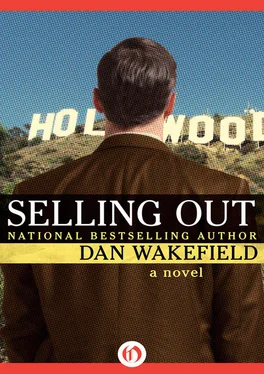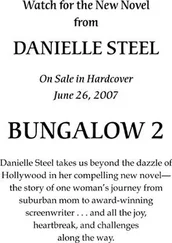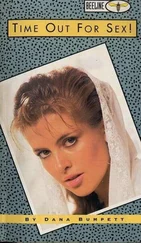“Maybe you need a change of scene,” Al suggested, pulling up a stalk of foxtail grass from the side of the road.
Perry stopped in his tracks.
“From here? From Havi land?”
The idea of living in some other place, or teaching at some other college, seemed not only disorienting to Perry, but worse, disloyal. This was the place that had taken him in when he needed a home, had given him shelter and sustenance, professionally and financially, at a time when other colleges and universities had looked down their academic nose at his credentials, or lack of them. Dropping out of the Ph.D. race at Harvard to support his short-story writing by bartending, baby-sitting, selling encyclopedias and vitamins door to door, and teaching freshman composition at a pharmaceutical college in Boston had not made him an attractive candidate in the eyes of most of the English department chairmen around New England. There was one, however, who saw something more in him, and valued it.
“You’re a writer!” old Professor Bryant had said to him seventeen years ago, looking up from Perry’s short story in the Atlantic Monthly , lifting his hands in a gesture of honor and welcome. With Bryant’s influential backing, Haviland had given Perry the time to write as well as teach, and the college community came to regard him proudly as their writer . They nested and nourished him, protected and praised him, shared the honor of his books and prizes, put up with his black moods and drinking bouts, stood by him through the busted marriage that sent him into a tailspin at thirty-two and the ragged personal life that followed till Jane came along, like a real-live happy ending, beginning brighter days.
“I only meant a temporary change,” Al said. “I never thought I’d be saying this to you, of all people, but maybe you’re too comfortable now.”
“Too fat and happy, huh?” Perry grinned. “Maybe that’s it. Maybe I do need a change—a challenge.”
Al suggested he apply for a grant or fellowship to go abroad for a while, and Perry pounced on the notion. He sent off to foundations for applications, lined up distinguished sponsors, and with Al’s help concocted high-sounding proposals for literary projects. Yet all the time, underneath all the activity, he knew that none of it would really happen because in his heart he really didn’t care. The romantic images he had held in his youth of “Paris” and “Ireland”—not the real places but the literary dream about them—had faded, lost their power. Trying to revive his feeling about them was as useless as trying to re-create the passion once felt for an old lover.
Jane did her admirable best at playing the game of enthusiasm for going abroad. She even revived Perry’s fantasy of the two of them doing a book together, one of those color-filled coffee-table numbers, a marriage of her pictures and his words: The Irish Coast–A New View , or Sidestreets of Paris Reconsidered . Perry brought home maps that they spread on the living room floor, bending over to study as assiduously as explorers, but under the bright pretense Jane sensed his real unrest and lack of interest. She was worried about him.
“What is it? What’s happening?”
She would ask, with gentle concern, when she woke in the dark hour before dawn to find him noiselessly pacing the room in bare feet, or simply sitting in the old easy chair in the corner, smoking his pipe and staring.
“Nothing,” he answered quietly, or “I don’t know.”
He came and kissed her gently on the forehead, wondering himself what it was that distracted him during the day, acting like a subtle itch on his concentration. His senses had never seemed so acute, yet when classes began in September he found himself losing thoughts in midsentence, suddenly standing and staring at the students’ familiar faces and wondering who they were and how they got there.
All the girls seemed to be named Michelle now. When he started teaching they were mostly Mary Lou and Cindy and now they were Michelle and Dawn. Of course they weren’t girls any more, they were women. It was difficult for Perry to look at the latest crop of rosy-cheeked, milky-skinned, lithe young damsels, some of them teenagers fresh from pubescence, and call them women, just as it was incongruous for him to think of their giggling, pimply male counterparts as men. It was all right to slip now and then and refer to the male species as boys (the football coach called them his kids), but calling the females girls was a real cultural-political gaffe, practically reportable as an incident of sexual harassment.
There was a gorgeous Michelle who sat in the front row of Perry’s “Art of the Novel” class who he privately felt was sexually harassing him , and certainly contributing to his already acute condition of mental disorientation, by every ten minutes or so tossing back her head in such a way that her long mane of glossy hair swung like a golden curtain across her face and spread itself on her other shoulder. The execution of the movement involved an arching of the neck and back that thrust forward her high, ample breasts, which of course were not confined by the unnatural constriction of a bra, so that, under the low-cut T-shirt-type garment she wore above her skintight jeans, the breasts seemed to be shoved toward Perry like a kind of erotic taunt as he paced in front of the class. He wondered if alleging that this Michelle’s breasts were invading his space would be an acceptably current kind of complaint.
As the swing of Michelle’s golden mane one morning totally swept from Perry’s mind an intricate formulation he was about to present in regard to Henry James’s style in The Golden Bowl , he stopped and asked, “Excuse me, but do you have some kind of itch that makes you have to throw back your head like that?”
“No,” Michelle said with eye-blinking innocence, “I don’t have any kind of itch at all.”
There were giggles beginning now.
“Then why do you do it so often?”
“To develop my breasts,” she explained brightly.
The room cracked up, as Perry felt his face become a beet.
“Class dismissed,” he said.
It was one of those days. He happened to be wearing his treasured old faded Jefferson Airplane sweatshirt, which usually made him feel mellow, if not still youthful. He often wore to class instead of the standard tweed jacket with suede elbow patches one of his colorful collection of sweatshirts emblazoned with images and names of sixties music groups, or offbeat places or events he had been to, like the Fifth Annual Joy Street Block Party held on Beacon Hill, in Boston, and the World Blueberry Capital, which was Union, Maine. Wearing one of those with one of his colorful hats (the brief-billed Chinese worker’s cap, the Parisian beret were among his favorites), plus a pair of bright red or green corduroys with hiking boots, made Perry feel happily more like a crazy creative sort than a stodgy professor. It was not only tolerated, he felt it was rather expected of him, part of the fulfillment of his role as the English department’s “real writer.”
It of course was on that day, the day of Michelle’s coming out with the line about her breast development exercises, that one of Perry’s freshman comp students noticed his Jefferson Airplane sweatshirt and asked, with a kind of remote, antiquarian interest, “Were they around the same time as Elvis?”
Perry went home and stared at himself in the mirror before lunch, trying to see himself objectively, the way others saw him. His light brown curly hair had begun to go gray, and the boyish freckles now seemed out of place. Would those marks of youth, those happy daubs of Huck Finn innocence, soon be mistaken for liver spots?
Читать дальше












